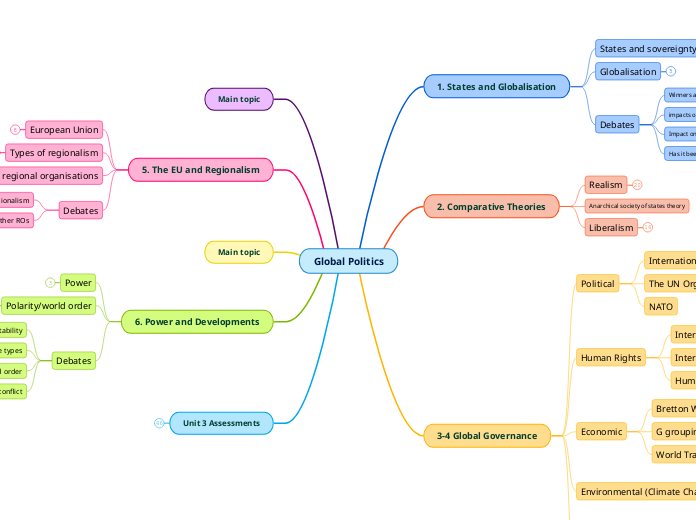MOTION OF NO CONFIDENCE
Section 101
1. The Government shall resign after the holding of general elections, in the event of loss of parliamentary confidence as provided in the Constitution, or on the resignation or death of the President.
2. The outgoing Government shall continue as acting body until the new Government takes office.
AUDIENCIAS PROVINCIALES
JUZGADOS
AYUNTAMIENTO DE ZAMORA
ALCALDE- Francisco Guarido
CONCEJALES
DIPUTACIONES PROVINCIALES
PRESIDENT- Mª Teresa Martín Pozo
PROVINCIAL MUNICIPAL LEVEL
TRIBUNAL SUPERIOR DE CYL
CAPÍTULO V
El Poder Judicial en Castilla y León
Artículo 38
Competencias en materia de Administración de Justicia.
En relación con la Administración de Justicia, exceptuada la militar, corresponde a la Comunidad Autónoma de Castilla y León de acuerdo con la legislación del Estado:
1. Delimitar las demarcaciones territoriales de los órganos jurisdiccionales y la localización de su sede y, en su caso, solicitar la revisión de la planta de los Juzgados y Tribunales para adaptarla a las necesidades de su ámbito territorial.
2. Ejercer las facultades normativas, ejecutivas y de gestión que tenga atribuidas en relación con la creación, el diseño y la organización de las oficinas judiciales y unidades administrativas, así como respecto al personal no judicial al servicio de la Administración de Justicia.
3. Ejercer las facultades normativas, ejecutivas y de gestión que tenga atribuidas en relación con los organismos e instituciones colaboradores de la Administración de Justicia, incluidos los servicios de medicina forense y de toxicología.
4. Proveer de medios personales, materiales y económicos a la Administración de Justicia dentro del marco de sus competencias.
5. De manera general, ejercer aquellas otras competencias que le reconozca o atribuya la legislación del Estado.
PRESIDENT- Jose Luis Concepción
JUNTA DE CASTILLA Y LEÓN
Artículo 3. Sede.
2. La Junta de Castilla y León determinará la ubicación de los organismos o servicios de la Administración de la Comunidad, atendiendo a criterios de descentralización, eficacia y coordinación de funciones y a la tradición histórico-cultural.
PRESIDENT- Juan Vicente Herrera
CONSEJERÍA
CORTES DE CASTILLA Y LEÓN
Artículo 3. Sede.
1. Una ley de las Cortes de Castilla y León, aprobada por mayoría de dos tercios, fijará la sede o sedes de las instituciones básicas de la Comunidad.
PRESIDENT- Silvia Clemente
REGIONAL AUTONOMYC LEVEL
Artículo 1. Disposiciones generales.
1. Castilla y León es una comunidad histórica y cultural que tiene su origen en los antiguos Reinos de León y de Castilla, ha contribuido de modo decisivo a la formación de España como Nación, ejerce su derecho al autogobierno y se constituye en Comunidad Autónoma en el marco de la Constitución y del presente Estatuto de Autonomía.
2. La Comunidad de Castilla y León, como región de Europa, asume los valores de la Unión Europea y vela por el cumplimiento de sus objetivos y por la defensa de los derechos reconocidos en el ordenamiento jurídico europeo.
NATIONAL LEVEL
HEAD OF THE STATE: The King Phillip VI
Section 56
1. The King is the Head of State, the symbol of its unity and permanence. He arbitrates and moderates the regular functioning of the institutions, assumes the highest representation of the Spanish State in international relations, especially with the nations of its historical community, and exercises the functions expressly conferred on him by the Constitution and the laws. 2. His title is that of King of Spain, and he may use the other titles appertaining to the Crown. 3. The person of the King is inviolable and shall not be held accountable. His acts shall always be countersigned in the manner established in section 64. Without such countersignature they shall not be valid, except as provided under section 65(2).
Section 62
It is incumbent upon the King:
a) To sanction and promulgate the laws.
b) To summon and dissolve the Cortes Generales and to call for elections under the terms provided for in the Constitution.
c) To call for a referendum in the cases provided for in the Constitution.
d) To propose a candidate for President of the Government and, as the case may be, appoint him or her or remove him or her from office, as provided in the Constitution.
e) To appoint and dismiss members of the Government on the President of the Government’s proposal.
f) To issue the decrees approved in the Council of Ministers, to confer civil and military positions and award honours and distinctions in conformity with the law.
g) To be informed of the affairs of State and, for this purpose, to preside over the meetings of the Council of Ministers whenever he sees fit, at the President of the Government’s request.
h) To exercise supreme command of the Armed Forces.
i) To exercise the right of clemency in accordance with the law, which may not authorize general pardons.
j) To exercise the High Patronage of the Royal Academies.
Section 63
1. The King accredits ambassadors and other diplomatic representatives. Foreign representatives in Spain are accredited before him.
2. It is incumbent upon the King to express the State’s assent to international commitments through treaties, in conformity with the Constitution and the laws.
3. It is incumbent upon the King, following authorization by the Cortes Generales, to declare war and to make peace.
Section 64
.1 The King’s acts shall be countersigned by the President of the Government and, when appropriate, by the competent ministers. The nomination and appointment of the President of the Government and the dissolution provided for under section 99, shall be countersigned by the Speaker of the Congress.
2. The persons countersigning the King’s acts shall be liable for them.
Section 65
1. The King receives an overall amount from the State Budget for the maintenance of his Family and Household and distributes it freely.
2. The King freely appoints and dismisses civil and military members of his Household.
JUDICIAL POWER
Section 117
1. Justice emanates from the people and is administered on behalf of the King by judges and magistrates members of the Judicial Power who shall be independent, shall have fixity of tenure, shall be accountable for their acts and subject only to the rule of law.
2. Judges and magistrates may only be dismissed, suspended, transferred or retired on the grounds and subject to the safeguards provided for by the law.
3. The exercise of judicial authority in any kind of action, both in ruling and having judgments executed, is vested exclusively in the courts and tribunals laid down by the law, in accordance with the rules of jurisdiction and procedure which may be established therein.
4. Judges and courts shall not exercise any powers other than those indicated in the foregoing subsection and those which are expressly allocated to them by law as a guarantee of any right.
5. The principle of jurisdictional unity is the basis of the organization and operation of the courts. The law shall make provision for the exercise of military jurisdiction strictly within military framework and in cases of state of siege (martial law), in accordance with the principles of the Constitution.
6. Courts of exception are prohibited.
TRIBUNAL CONSTITUCIONAL
PRESIDENT- Juan José González Rivas
TIBUNAL SUPERIOR
Section 123
1. The Supreme Court, with jurisdiction over the whole of Spain, is the highest judicial body in all branches of justice, except with regard to provisions concerning constitutional guarantees.
2. The President of the Supreme Court shall be appointed by the King, on the General Council of the Judicial Powers’ proposal in the manner to be laid down by the law.
PRESIDENT- Carlos Lesmes Serrano
EXECUTIVE POWER
GOVERMENT
Section 98
1. The Government shall consist of the President, Vice-Presidents, when appropiate, Ministers and other members as may be created by law.
PRESIDENT- Pedro Sánchez
Section 98
2. The President shall direct the Governments’ action and coordinate the functions of the other members thereof, without prejudice to the competence and direct responsability of the latter in the discharge of their duties.
EX-PRESIDENT- M. Rajoy
LEGISLATIVE POWER
GENERAL COURTS
Section 66
1. The Cortes Generales represent the Spanish people and shall consist of the Congress and the Senate.
2. The Cortes Generales exercise the legislative power of the State and adopt its Budget, control the action of the Government and have the other competences assigned by the Constitution.
3. The Cortes Generales are inviolable.
SENATE
Section 69
1. The Senate is the House of territorial representation.
2. In each province, four Senators shall be elected by the voters thereof by universal, free, equal, direct and secret suffrage, under the terms to be laid down by an organic act.
3. In the insular provinces, each island or group of islands with a Cabildo or insular Council shall be a constituency for the purpose of electing Senators; there shall be three Senators for each of the major islands —Gran Canaria, Mallorca and Tenerife— and one for each of the following islands or groups of islands: Ibiza-Formentera, Menorca, Fuerteventura, Gomera, Hierro, Lanzarote and La Palma.
4. The cities of Ceuta and Melilla shall elect two Senators each.
5. The Self-governing Communities shall, in addition, appoint one Senator and a further Senator for every million inhabitants in their respective territories. The appointment shall be incumbent upon the Legislative Assembly or, in default thereof, upon the Self-governing Community’s highest corporate body as provided for by its Statute which shall, in any case, guarantee adequate proportional representation.
6. The Senate is elected for four years. The Senators’ term of office shall end four years after their election or on the day on which the House is dissolved.
PRESIDENT- Pío García
CONGRESS
Section 68
1. The Congress shall consist of a minimum of three hundred and a maximum of four hundred Members, elected by universal, free, equal, direct and secret suffrage, under the terms to be laid down by the law.
2. The electoral constituency is the province. The cities of Ceuta and Melilla shall be represented by one Member each. The total number of Members shall be distributed in accordance with the law, each constituency being allotted a minimum initial representation and the remainder being distributed in proportion to the population.
3. The election in each constituency shall be conducted on the basis of proportional representation.
4. The Congress is elected for four years. The term of office of Members thereof ends four years after their election or on the day on which the Congress is dissolved.
5. All Spaniards entitled to the full exercise of their political rights shall be electors and may be elected. The law shall recognise and the State shall facilitate the exercise of the right of vote by Spaniards who are outside Spanish territory.
6. Elections shall take place between thirty and sixty days after the end of the previous term of office. The Congress so elected must be convened within twenty-five days following the holding of elections.
PRESIDENT- Ana Pastor









